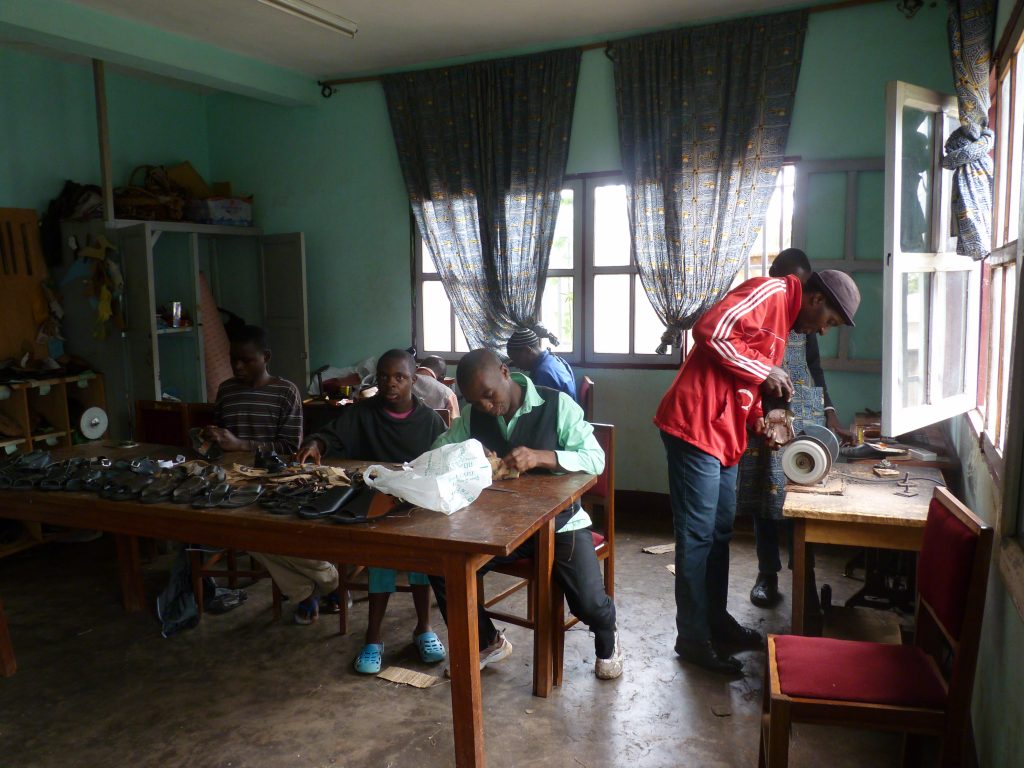Rehabilitation Center
Problem:
In Cameroon, people with special needs are considered inferior, inadequate, and incapable of living a normal life. Long-term segregation has created fear, embarrassment and discrimination. As a result, the rate of unemployment for persons with disabilities is much higher than for people without disabilities, and many people with disabilities have lower levels of education, lower self-esteem, and are not able to access the medical services they need. Many of the programs and services targeted to people with special needs are not affordable. Nonetheless, when people with special needs are given equal opportunity, they can support themselves and make valuable contributions to society and to the economy. Therefore, SHUMAS provides rehabilitation and training to people with special needs to enable them to reach their full potential.
The objectives was to improve the lives of at least 30 people with special needs annually through life skills trainings and other rehabilitation activities like protection and psychosocial support, so as to enable them to become economically independent. SHUMAS originally supported people with special needs in workshops around Bamenda, but discovered that this was hard to monitor and did not necessarily place people with special needs in conducive, non-discriminatory learning environments.
To address this issue, SHUMAS built the Vocational Rehabilitation Centre in 2009. The center offers training in income-generating life skills such as sewing, knitting, traditional embroidery, shoe-mending, cane- weaving, hairdressing, and jewelry. Participants are trained over a course of two years, after which they receive materials to help them set up their own workshops in their communities. SHUMAS continues to monitor their progress and provide support as needed after training. As a means of sensitization the center also welcomes visitors, students, and interns. Conditions for the training: The Participants are aged 15-40 and capable of learning one of the life skills offered at the Centre. They must have a legal guardian who attends PTA meetings. The training is free, but participants are responsible for their own lodging, transportation, and feeding costs. There is a residence at the Centre for those who come from out of town.



Achievements:
More than 50 participants have graduated from the center and over 50 individuals have received some training. The graduates have been supported with startup material and have set up their own workshops. Some of them have been successful enough to support their families in addition to themselves.
Challenges:
- It is difficult to find adequate funding to provide all the necessary start-up materials. Some trainees face hunger and illness once at the Centre because their families cannot contribute to feeding costs.
- Transportation to off-site activities is not always available, forcing trainees and teachers to use public transportation.
- The equipment at the center is becoming obsolete, and often requires costly maintenance and repairs.
Future Plans:
In order to widen the accessibility of the project to disabled people in rural communities, the following actions are perceived for the near future:
- Micro-credit unit to assist poor disabled persons to set up business.
- Minibus transportation of disabled persons to assist as many people as possible, SHUMAS would like to increase of number of trainees in the Vocational Rehabilitation Centre to 30 per year.
